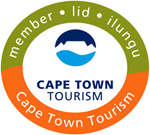|
Newsletter / Blog
2011-04-17
Reinforcements at last for Tristan da Cunha’s oiled penguins
Cape Town, 15 April 2011. The Russian research vessel Ivan Papanin
arrived at the remote Tristan da Cunha Island group on Monday. On
board were valuable supplies to assist in cleaning up oil from a
grounded cargo ship that has oiled many thousands of endangered
Northern Rockhopper Penguins.
The MS Oliva was on a voyage from Brazil to China, carrying a cargo of
soya beans. It ran aground on Nightingale Island on 16 March and broke
apart two days later, spilling its bunker oil and cargo into the sea.
The Ivan Papanin is the fourth vessel chartered by the owners of the
MS Oliva and their insurers since the incident. The settlement on
Tristan da Cunha is the most isolated in the world, six days sailing
from Cape Town. This has made the mobilisation of equipment and
supplies very challenging.
There has been outspoken criticism of what some describe as ‘huge
delays’ in getting resources and personnel to the islands. Dr Ross
Wanless, BirdLife South Africa’s Seabird Division Manager, said “It is
unknown how many penguins have died from the oiling. What is clear is
that waiting more than three weeks for appropriate gear and people
meant that thousands of penguins could not be captured, and many of
those that were couldn’t be treated in time. The tightly controlled
communications have made an honest assessment of the scale of this
disaster impossible. Who is calling the shots, and why are we getting
a trickle of positive-only stories from what is clearly a
catastrophe?”
The same day the ship ran aground, two vessels were chartered by the
owner's appointed salvors. A third vessel left two weeks later with
five penguin rehabilitation experts and some supplies for penguin
rehabilitation. It took a further 10 days to get the fourth vessel
underway. Dr Wanless added “The negligence in allowing the vessel to
run aground in the first instance cannot go unpunished. The
consequences have now been compounded by the low priority given by the
ship owner and insurer to rescuing the penguins.”
Mark Anderson, BirdLife South Africa’s Chief Executive Officer stated
that “…punitive measures should be taken against those responsible for
the avoidable death of thousands of endangered penguins.”
Currently there is a 28-person team of international experts on the
island, including SANCCOB (Southern African Foundation for the
Conservation of Coastal Birds) veterinarians and oil pollution and
salvage experts from the ITOPF (International Tanker Owners Pollution
Federation). The Tristan islanders have responded admirably to the
disaster and nearly one third of the island population is working with
the international teams.
Approximately 60% of the global population of the endangered Northern
Rockhopper Penguins breed on the islands of the Tristan da Cunha
group. The total population is estimated to be around 200,000 breeding
pairs. Fortunately at the time the ship ran aground, many penguins had
finished their moulting period and most had left the rookeries and
gone to sea to feed. They will not be back at Tristan until August,
when they begin to breed. On 22 March there were an estimated 20,000
penguins affected by the oil spill, but some areas were never
surveyed. The lack of suitable vessels and rough seas typical of the
area prevented more thorough efforts. There are 3718 oiled penguins in
the rehabilitation centre on the main island of Tristan and the last
56 penguins arrived from Nightingale Island, the site of the
grounding, on Sunday last week. To date at least 1577 oiled penguins
have died at the centre. No more oiled penguins remain on any of the
outer islands.
The immediate reaction from island residents was to set up a
rehabilitation centre for the oiled penguins. However, the rehab team
could only begin washing the penguins once the first SANCCOB team
arrived on 5 April, bringing with them specialised washing equipment
and heaters to prevent the penguins getting cold. The rehab team hope
to wash 100 penguins per day.
The onset of the southern winter brought a mixed blessing to the
cleanup operation. While the gale force winds and heavy seas have
hampered the clean-up response, they have also broken up most of the
released oil.
| 

